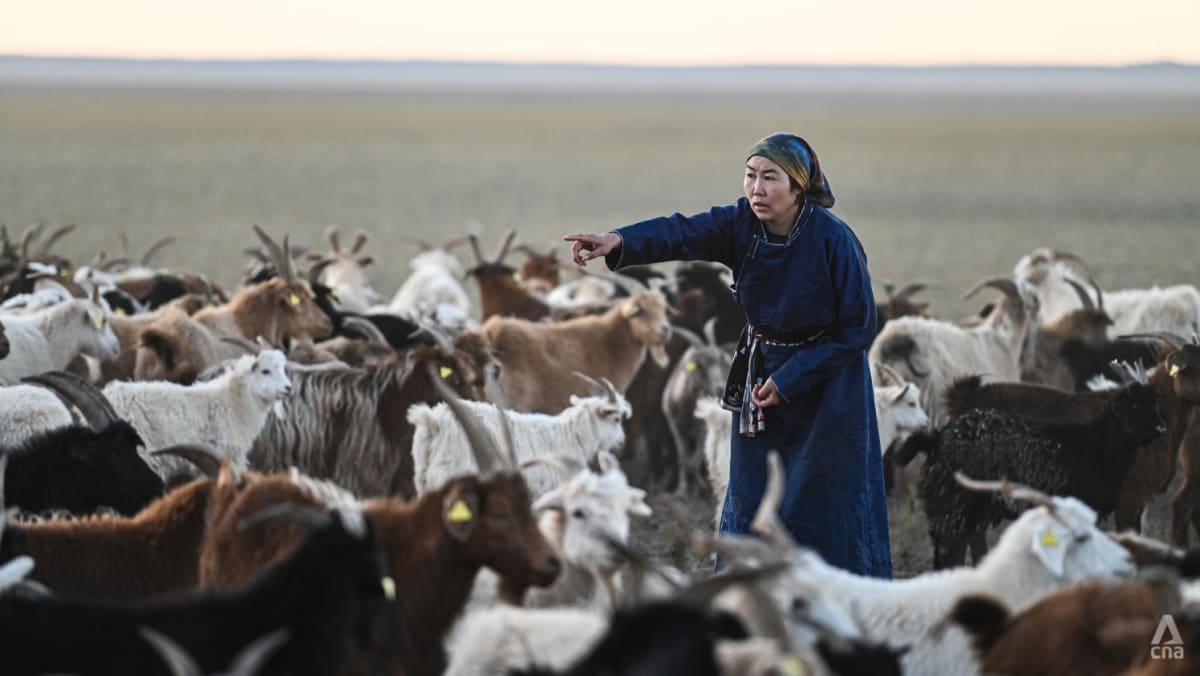
“In the Gobi, it is difficult to be a herder. No rain, with too many mines. For the last three years, we haven’t had any rainfall and we are just moving with our animals,” Nergui said.
“I left my camels because you need more people to herd the animals, it is a lot of work. I visited them this year and cut their fur in the spring.
“My camels aren’t doing well, they’ve gotten really weak. Maybe there are no plants they can eat and no water either. It’s quite bad,” he said.
Their new location in Ömnögovi does not offer a stable future either. The pasture is parched. There are too many animals scouring for the little greenery peeking out of the crusted soil. Yet another move is on the cards.
“We will move from here. We don’t have winter lodging and it is someone else’s homeland. If we move to the north, we are just afraid of the cold. In my homeland, it is warm and doesn’t get much snowfall. That is what I am afraid of,” Nergui said.
The family will look to the more plentiful grasslands, knowing they will be unwelcome there too and that the desert will be pursuing them like a shadow.
“If it rains, we will go back. If it doesn’t, there is no way for us to go back. Desertification is everywhere.”
